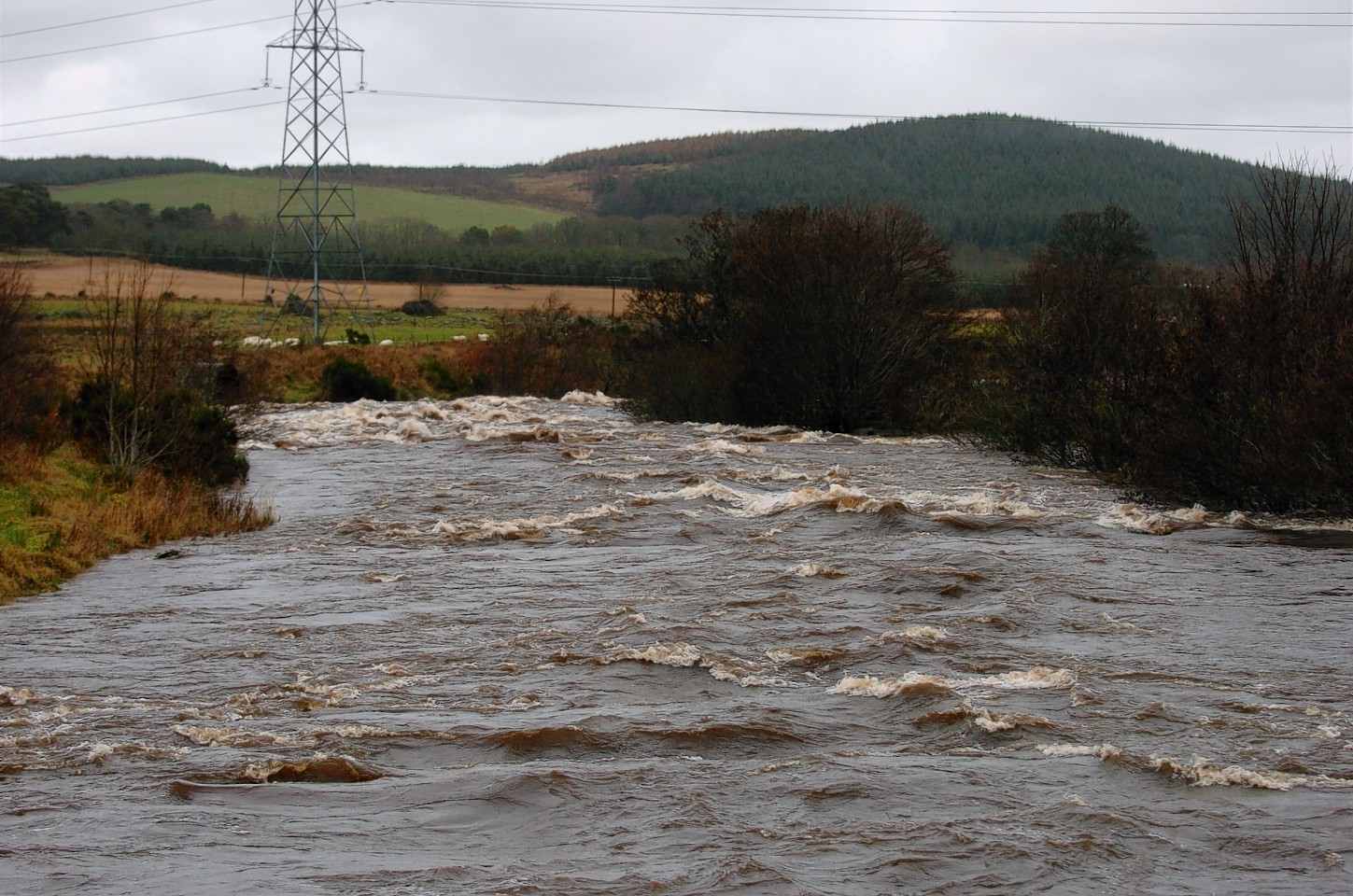Two major north-east roads could be protected from future flooding if a £2.9million scheme goes ahead, it was claimed yesterday.
Aberdeenshire Council wants to strengthen flood defences in Huntly to protect homes, businesses and farm land along the River Deveron and the Meadows and Ittingstone burns.
The authority’s proposals include raising and strengthening existing defences on the river between the Bridge of Gibston and the Hill of Haugh, building culverts and creating storage for flood water by constricting the flow in the Meadow Burn.
But two local landowners have objected to the scheme, and at a public inquiry yesterday their concerns were considered by Scottish Government reporter Michael Cunliffe.
Retired chartered surveyor John Rhind, of Milton of Castleton, stressed that he had always been “wholeheartedly supportive” of the need for a flooding protection scheme, but was worried one of his fields would become a reservoir.
And Neil Duncan, of Ittingstone, lodged concerns in absentia that the water storage unit would bring flood water close to his steading.
William Murdoch, Aberdeenshire Council’s projects manager told Mr Cunliffe: “It (the water storage) is of benefit to Mr Rhind in that it holds back water and reduces the overflow that would be in his neighbouring fields to the east, and holdback and limit the amount of flooding on the A920 Huntly-Dufftown road and the A96 trunk road.
“It does have a detrimental impact on Mr Duncan’s fields. The storage system could be removed from the scheme but it would then be detrimental to Mr Rhind and the highways infrastructure.
“That’s not the solution we would prefer.”
Mr Rhind discussed concerns about the debris that flows down the Meadows burn, and questioned what would happen if three trash screens in the culvert got blocked.
He said: “A feature of the previous flooding in Huntly in 1995 and 2009 was the debris and trash that comes down Meadows burn.
“Flooding will be far greater than these plans show. The point is that my field is going to be used as a reservoir.”
Mr Murdoch and engineering consultant Huw Richards, of Atkins, accepted there would be standing water in the field.
However, Mr Murdoch made assurances that regular maintenance and checks would be carried out on the trash screens.
Mr Cunliffe will now consider the evidence before making a recommendation to the council about whether it should push on, amend or scrap the scheme.
If given the final tick of approval, the earliest work would start is September and it would take six to eight months.
